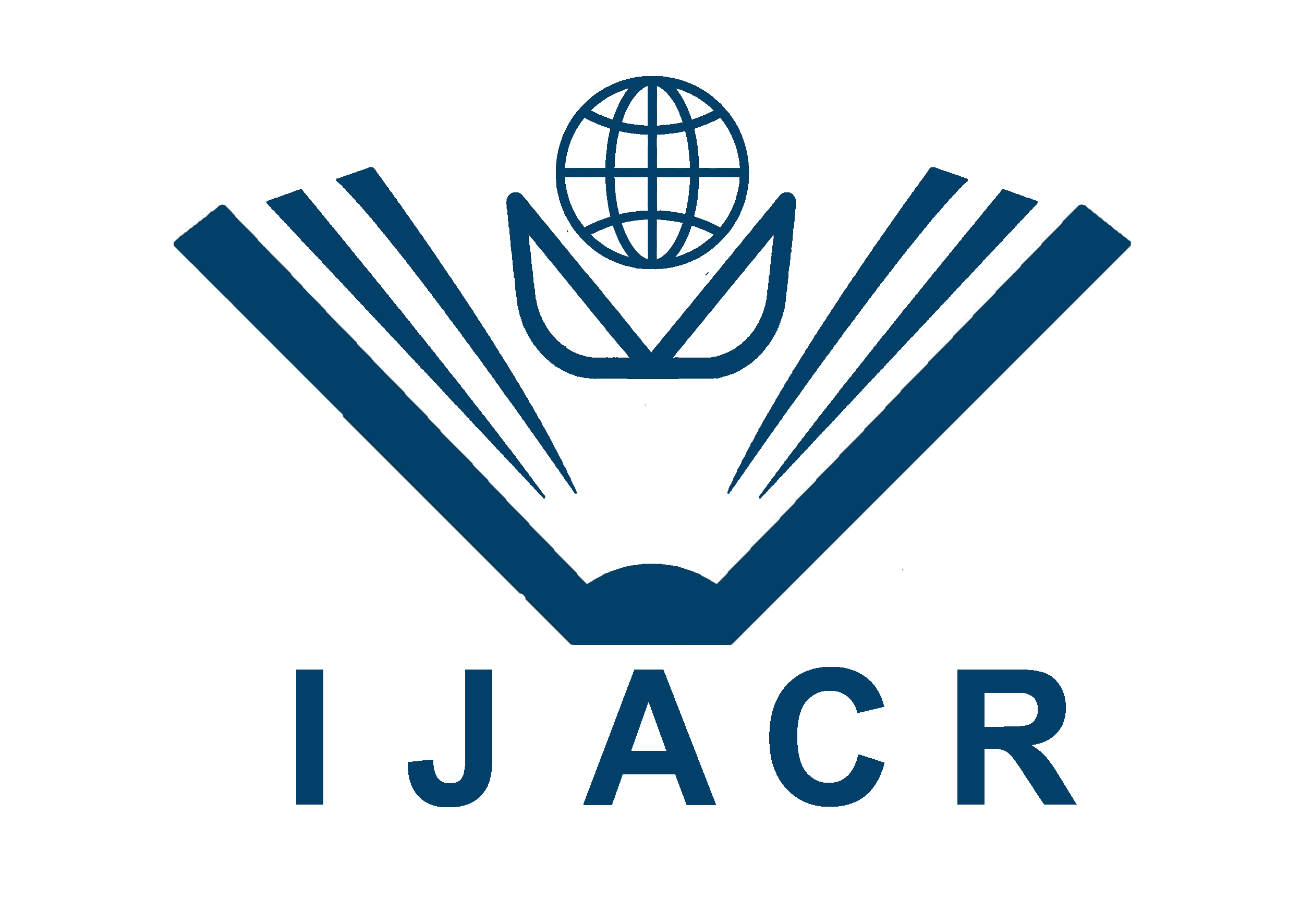International Journal for Asian Contemporary Research, 5(2): 41-47
Yield Quality and Water Use Efficiency of Maize as Affected by Deficit Irrigation Treatment
02 August, 2025 || Accepted: 28 August, 2025 || Published: 10 September, 2025
A B S T R A C T
Maize (Zea mays L.) is an essential crop for food, feed, and industry, particularly in regions like Bangladesh, where water scarcity is a growing concern. This study investigates the effects of deficit irrigation (DI) on maize growth, yield, and grain quality under varying water conditions. Conducted at the Agronomy Field Laboratory, Rajshahi University using a split-plot experimental design with three replications. The experiment involved two maize varieties (V1 and V2) and four irrigation treatments based on pan evaporation: T1 (125%), T2 (100%), T3 (75%), and T4 (50%). Results showed significant reductions in plant height, total dry matter (TDM), and grain yield with decreasing irrigation levels. The highest grain yield of 12.07 t ha-1 was recorded under T1, while the lowest yield of 7.87 t ha-1 occurred under T4. Similarly, TDM was highest in T1 (141.60 g plant-1) and lowest in T4 (89.60 g plant-1). Carbohydrate content in grains increased under water stress, with T4 showing the highest carbohydrate content (69.07%), whereas protein content decreased, with the lowest protein content observed in T4 (9.52%). The results indicate that although deficit irrigation enhances water-use efficiency, it significantly reduces maize productivity and quality. The study highlights key physiological mechanisms, including reduced turgor pressure, limited photosynthesis, and resource reallocation, which contribute to these variations.
Keywords: Water Use Efficiency, Deficit irrigation, Pan evaporation and Nutritional quality.
Copyright information: Copyright © 2025 Author(s) retain the copyright of this article. This work is licensed under a Creative Commons Attribution 4.0 International License
To cite this article: Rahman, T.M.R., Khan, M.T.A., Sharkar, M.N., Islam, M.M., Islam, M.R., Salahin,M., Yasmin, M.N. and Alam, A.M.S. (2025). Yield Quality and Water Use Efficiency of Maize as Affected by Deficit Irrigation Treatment. International Journal for Asian Contemporary Research, 5(2): 41-47.
References
- Adnan, K. M., Sarker, S. A., Tama, R. A. Z., & Pooja, P. (2021). Profit efficiency and influencing factors for the inefficiency of maize production in Bangladesh. Journal of Agriculture and Food Research, 5, 100161.
- Al-Baarri, A. N., Hadipernata, M., Legowo, A. M., Abduh, S. B. M., Pratiwi, A. F., Setyadi, B., Ranini, A. A., Lestari, F. P., Pangestika, W., & Mawarid, A. A. (2022). Corn Germ Color Detection during Storage in Kendal Regency, Central Java. IOP Conference Series: Earth and Environmental Science, 1024, 012034.
- Albahri, G., Alyamani, A. A., Badran, A., Hijazi, A., Nasser, M., Maresca, M., & Baydoun, E. (2023). Enhancing Essential Grains Yield for Sustainable Food Security and Bio-Safe Agriculture through Latest Innovative Approaches. Agronomy, 13(7), 1709.
- Ali, O., & Abdelaal, M. (2020). Effect of irrigation intervals on growth, productivity and quality of some yellow maize genotypes. Egyptian Journal of Agronomy, 42(2), 105–122.
- Allakonon, M. G. B., Zakari, S., Tovihoudji, P. G., Fatondji, A. S., & Akponikpè, P. I. (2022). Grain yield, actual evapotranspiration and water productivity responses of maize crop to deficit irrigation: A global meta-analysis. Agricultural Water Management, 270, 107746.
- Chen, C.-H., Lin, K.-H., Chang, Y.-S., & Chang, Y.-J. (2023). Application of water-saving irrigation and biostimulants on the agronomic performance of maize (Zea mays). Process Safety and Environmental Protection, 177, 1377–1386.
- Goredema-Matongera, N., Ndhlela, T., Magorokosho, C., Kamutando, C. N., van Biljon, A., & Labuschagne, M. (2021). Multinutrient biofortification of maize (Zea mays L.) in Africa: current status, opportunities and limitations. Nutrients, 13(3), 1039.
- Hassan, Hadi, Alkarawi.,Ghassan, J, Obaid., Abdul, Ghani. (2022). Effect of different surface irrigation systems and organic fertilization on water productivity of maize yield.IOP conference series, 1120(1):012003-012003. doi: 10.1088/1755-1315/1120/1/012003.
- Huang, C., Ma, S., Gao, Y., Liu, Z., Qin, A., Zhao, B., Ning, D., Duan, A., Liu, X., & Chen, H. (2022). Response of summer maize growth and water use to different irrigation regimes. Agronomy, 12(4), 768.
- Leakey, A. D. B., Ferguson, J. N., Pignon, C. P., Wu, A., Jin, Z., Hammer, G. L., & Lobell, D. B. (2019). Water Use Efficiency as a Constraint and Target for Improving the Resilience and Productivity of C 3 and C 4 Crops. Annual Review of Plant Biology, 70(1), 781–808.
- Liu, L., Hao, L., Zhang, Y., Zhou, H., Ma, B., Cheng, Y., Tian, Y., Chang, Z., & Zheng, Y. (2022). The CO2 fertilization effect on leaf photosynthesis of maize (Zea mays L.) depends on growth temperatures with changes in leaf anatomy and soluble sugars. Frontiers in Plant Science, 13, 890928.
- Liu, M., Wang, G., Liang, F., Li, Q., Tian, Y., & Jia, H. (2022). Optimal irrigation levels can improve maize growth, yield, and water use efficiency under drip irrigation in Northwest China. Water, 14(23), 3822.
- Lubajo, B. W. (2022). Effect of Deficit Irrigation on Growth and Yield of Maize (Zea Mays) in Kiboko Research Station, Makueni County, Kenya [PhD Thesis, University of Nairobi].
- Palacios‐Rojas, N., McCulley, L., Kaeppler, M., Titcomb, T. J., Gunaratna, N. S., Lopez‐Ridaura, S., & Tanumihardjo, S. A. (2020). Mining maize diversity and improving its nutritional aspects within agro‐food systems. Comprehensive Reviews in Food Science and Food Safety, 19(4).
- Rai, A., Sarkar, S., & Jha, P. K. (2022). Deficit Irrigation: An Optimization Strategy for a Sustainable Agriculture. In S. K. Dubey, P. K. Jha, P. K. Gupta, A. Nanda, & V. Gupta (Eds.), Soil-Water, Agriculture, and Climate Change (Vol. 113, pp. 163–181). Springer International Publishing.
- Rasool, G., Guo, X., Wang, Z., Ullah, I., & Chen, S. (2020). Effect of two types of irrigation on growth, yield and water productivity of maize under different irrigation treatments in an arid environment. Irrigation and Drainage, 69(4), 732–742.
- Tanklevska, N., Petrenko, V., Karnaushenko, A., & Melnykova, K. (2020). World corn market: analysis, trends and prospects of its deep processing. Agricultural and Resource Economics: International Scientific E-Journal, 6(1868-2020–1688), 96–111.
Article View: 1025 times



